Tried, tested and now trusted by Food Industry: OneCharge Li-ion Batteries became the power solution of choice for a leading dairy producer
One of the leading US dairy producers made the switch to OneCharge Lithium-Ion batteries to ensure uninterrupted multishift warehouse forklift fleet operations in temperatures ranging from -30 to 70F. “We ran the numbers and never bought a lift truck without a Li-ion battery after that!”. Warehouse Manager. Executive Summary The Company featured here is one of the country’s largest branded food and beverage companies with 13 manufacturing plants throughout the United States. In 2018 the Company was looking into ways to improve its operating efficiency and safety. Freezer and Cooler environment with low temperatures put a lot of strain on lead-acid batteries resulting in long charging hours and operations’ disruptions. The switch to Yale trucks powered by OneCharge FROST Li-ion batteries was smooth and did not require any operational or infrastructure changes. As a result, the operations management saw an increase in forklifts’ runtime and a major decrease in charging and overall battery maintenance time. Workplace safety has also improved. Challenges In close to 200 years of its history, this dairy producer has grown to become one of the leading national dairy producers with the highest operational and safety standards. Although electric forklifts are the best choice for food manufacturing and personnel safety, the lead-acid batteries were creating constant issues. Besides acid spills and fumes in the course of daily maintenance, lead-acid technology has an inherent weakness – these batteries lose up to 33% of its power in a cold environment (30F), not to mention Freezer with its brutal -20F. Taking into account that a lead-acid battery can’t go under 20% of discharge, and a rigid charging schedule of 8 hours of charging and 8 hours of cooling, the fleet performance was obviously suboptimal. The uptime increase has become a real issue for the company with the 2 shifts operations when batteries needed to be charged and changed in the middle of a shift. “There was a lot of frustration!”, said Steve Castrignano, NITCO Sales Manager, one of the leading national dealers of Material Handling Equipment. How OneCharge Lithium Batteries helped When Steve Castrignano from NITCO introduced the facility management to the new Li-ion technology, they already knew about this technology for years. Warehouse Manager was however apprehensive of the actual performance of Li-ion batteries in the cold environment. There were no benchmarks and other cases at the hand of Li-ion batteries operating in similar applications. Steve started with a full power study of the equipment application, including an analysis of data on charging time, maintenance time, and full ROI calculations. He came up with a “one truck – one battery” design based on Li-ion power solution, and a new set up of the chargers closer to the operations. The Company decided to start with a Demo battery to make a data-driven decision. OneCharge Lithium solution features advanced data capabilities. The battery’s BMS (Battery Management System) provides insights on the battery State of Discharge, exact timing and duration of charge and discharge events, and calculates total Ah throughput. Not only this allow us to calculate exactly the battery useful lifetime, but also makes a decision on voltage and capacity best suited for the specific operation! After a few weeks of operations, the actual use of data from the Demo battery was clear – a battery of a bigger capacity is required for optimal performance. 630Ah capacity recommendation was corrected to an 830Ah. OneCharge offered FROST I batteries for lift trucks operating in the Cooler environment. These batteries have thermal insulation of the cells, allowing to safely operate at around 30F and occasional trips into the Freezer. These batteries need to be charged outside of a Freezer. For the Freezer operations, the Company acquired OneCharge FROST II batteries, which can operate at temperatures as low as -22F, and never leave a Freezer, including charging time! These batteries have thermostat-controlled heater placed below the cells, cells are insulated, the case is sealed to keep out dust and condensation. Opportunity charging during any break and lunchtime provides top performance to a Li-ion battery at any given moment, one, two or even 3 shifts a day! Results, Return on Investment and Future Plans This dairy producer branch now operates forklifts powered with OneCharge Li-ion Batteries specifically designed and customized for each operation – FROST I and II for Freezer and Cooler environment and Standard American Lithium for regular ambient temperatures. The Warehouse Manager reports a slight increase of forklifts’ runtime and a massive decrease in charging and overall maintenance time. The safety improvements are also important – there are no more risks of acid spill and fumes or heavy batteries swapped related risks. Other company facilities are looking closely at this case and some are already on the way to the switch to Li-ion. Any major stress on the economy and business propels the trends in technology that were already building momentum in “peaceful” time. Companies are looking for ways to improve efficiency as a matter of survival, not just a nice-to-have or expendable environmental initiative. Efficient Li-ion batteries are replacing the old lead-acid technology. Tried-and-tested lithium solutions are no longer newcomers and we will see accelerating adoption of Li-ion batteries by all players in material handling over the next few years.
EnerSys Service Team continues providing support with enhanced Health and Safety Protocols amid COVID-19 pandemic
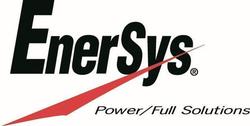
EnerSys®, the global provider in stored energy solutions for industrial applications, has continued operations through the COVID-19 pandemic while respecting health guidelines and regulatory compliance to ensure the safety of its employees and customers. In an effort to promote safer business practices both in its facilities and in the field, the company has implemented enhanced hygiene and social distancing procedures to mitigate the risk of contracting or spreading the virus. “From the start of the outbreak in March, we have prioritized the well-being of our team and that of our customers,” said Frank Shaffer, National Field Services Operations Manager at EnerSys. “While it was important for us to continue providing services during this crisis, especially for our customers who conduct essential operations, it was critical that we first establish specific protocols to follow in an attempt to reduce the risks associated with COVID-19.” EnerSys has executed these processes based on recommendations from the World Health Organization (WHO) and the Centers for Disease Control (CDC). In addition to social distancing and enhanced hygiene-related measures, EnerSys is working to protect employees by limiting contact during deliveries and offering face masks, nitrile gloves, and increased sterilization stations. “Industrial power solutions have been essential during the hardships of the COVID-19 pandemic,” said Shawn M. O’Connell, President, Motive Power Global at EnerSys. “For example, food and medical products are stored in warehouses, which use material handling equipment for shipping and receiving, as well as inventory management. This equipment requires dependable battery service to keep these supply chains working. It’s our responsibility to not only provide our customers with advanced power solutions but also to help ensure their health and safety during operations.”
Episode 89 – Enersys at MODEX 2020

In this episode, I was joined by Harold Vanasse who is the Senior Director of Motive Power Marketing at Enersys. You may remember that Enersys had my favorite innovation at ProMat last year, wireless forklift charging, and we talked further about it with Joern Tinnemeyer, their CTO, on Episode 18 last year so at MODEX I had to catch up with Harold and see what is the latest. Key Takeaways Enersys is one of the largest global suppliers of battery products for many different applications and industries. They provide multiple different battery applications for the forklift industry that allow you to operate with full power for extended periods of time. As you know from the previous discussion with them and this episode they are continuously innovating with wireless charging being a huge innovation for the industry. Their newest technology is the Nexsys line of batteries which has thin plate pure lead technology. This allows for a longer maintenance-free life of the battery. Being maintenance-free is key in the demanding distribution and warehouse environments that can require forklifts to be in use close to 24 hours a day. In this case, maintenance-free means no watering of batteries and minimal charging with fast charge setups allowing for a charge in less than 2 hours. For heavy-duty options, Enersys can provide lithium-ion battery options as well which provide the same maintenance-free, long-life advantages that the thin plate pure lead technology offers. Harold discusses how all of these different battery types are a part of the hybrid ecosystem Enersys can bring to your company. They utilize a program called Insights that helps them analyze which batteries are needed for your operation. This helps to ensure that you are getting the most cost-effective solution and the proper mix to power you through all shifts as needed. Harold also gave us an update on their wireless charging system and they even had a demo at MODEX which you can see below. Currently, they are working on field testing wireless charging with their initial target to be able to put in wireless chargers where forklift drivers park. Once this is perfected, they will move on to working on the “hot aisles” where charging will happen as the forklift operator travels in that area. The amazing thing about the wireless charging to me is the communication that the battery and the charger are doing to know when it should charge and when it should not. Really incredible stuff. Listen to and watch our discussion below. Are you looking forward to wireless charging? Leave a comment below and let us know. The New Warehouse Podcast EP 89: Enersys at MODEX n this episode, host Kevin Lawton catches up with Harold Vanasse of Enersys at MODEX 2020. They discuss Enersys’s different offerings including Nexsys and their wireless forklift battery charging solution.
Flux Power expands again
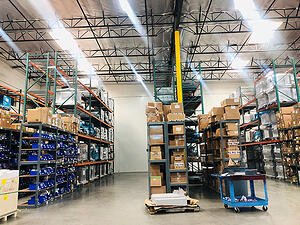
After moving to a new facility in June 2019, Flux Power is expanding its operations by occupying an additional 23,000 sqft facility. Supply Chain Manager Jerrett Chambers commented, “By doubling our production space and reorganizing inventory by packs, Flux Power will be able to reduce kit production times by 50%.” The facility expansion will feature: Installed vertical storage units to maximize inventory capacity Dedicated racks for each product line to optimize kit production and minimize time spent collecting materials Increased storage space for lithium-ion cells Enhanced manufacturing space for each of the product lines: X-Series, L-Series, M-Series, S-Series, & GSE Packs Expanded work area for RMA department “The acquisition of the new space allows the materials team to expand and provide a greater volume of raw goods, allowing production to expand capacity to its fullest,” stated Steve Fambro, Director of Production. The additional space will position Flux Power for continued growth to meet customer demand for clean, safe, and innovative lithium-ion battery solutions.
NexSys® PURE Battery withstands series of punishing conditions in extreme endurance video

EnerSys®, the global leader in stored energy solutions for industrial applications, recently released a captivating video, which exemplifies the strength and resilience of the NexSys® PURE Thin Plate Pure Lead (TPPL) battery in the most demanding conditions. The NexSys® PURE Extreme Endurance Video can be viewed on the EnerSys YouTube Channel by visiting https://youtu.be/lPJvh3h8MFM. The video features a series of four extreme tests performed by experts on a NexSys® PURE battery to depict the durability of the product. Key qualities that contribute to the battery’s tenacity and resilient performance include its tolerance to extreme temperatures, resistance to shock and vibration, and fortitude to power through external impact. These important factors demonstrate the value of NexSys® PURE batteries to the material handling industry. “The goal of this video is to illustrate the true power and grit of NexSys® PURE batteries to deliver superior results for industrial vehicle operations,” said Jordann Gaspari, Senior Manager of Marketing, Motive Power Americas at EnerSys. “Despite being put through some of the toughest conditions imaginable, our NexSys® PURE battery still produced power. It’s a testament to its unwavering ability to perform in even the most extreme circumstances.” Engineered with the latest generation of proprietary Thin Plate Pure Lead (TPPL) technology, NexSys® PURE batteries are ideal for light- to medium-duty applications and can perform in temperatures of as low as 12°F (-11°C). Its military-inspired design enables it to withstand extreme shock and vibration. NexSys® PURE batteries have the ability to deliver more power than conventional flooded lead-acid batteries in up to 30 percent less space. With fast and opportunity charging, in the correct application, NexSys® PURE batteries can get you through your workday without the hassle of battery change.
Engineering report enhances value of Nano One’s LFP Battery Cathode Technology
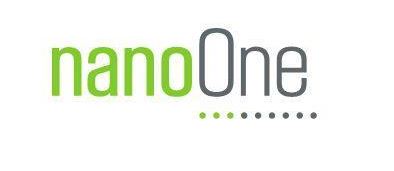
Engineering report to help advance commercial adoption of Nano One LFP technology Enhanced design specifications, tighter budgetary estimates, and improved economics Rising global enthusiasm for LFP with auto companies announcing 600 km range EVs Mr. Dan Blondal, CEO at Nano One, has announced that Nano One has completed a detailed engineering report that enhances design specifications, tightens budgetary estimates and models improved economics for the commercial-scale production of lithium-ion battery cathode materials using Nano One’s patented process technology. “We now have improved economics, and enhanced design specifications on a 4800 tonne per year manufacturing line for the production of lithium iron phosphate, known as LFP,” said Mr. Blondal. “The details in this engineering report will help advance the marketing and commercialization of Nano One technology. The results present tangible and meaningful cost reductions in equipment, construction, and operating expenses. It will showcase and advance the licensing and joint venture prospects of our patented one-pot cathode materials and production processes.” The report was prepared by Noram Engineering and Constructors of Vancouver, British Columbia. Enhanced budgetary analysis and economic modeling in the report reveals a reduction in equipment and operating expenses from last year’s estimates which complement raw material cost reductions announced in partnership with Pulead Technology in December 2019. The report also provides design specifications, process diagrams, flow sheets, mass balance, and plant layout. The engineering specifications and economic modeling in this report enhance the value of Nano One’s technology and strengthen Nano One’s commercial opportunities with Pulead and other global strategic interests. Further, the report forms an engineering basis for Nano One’s other cathode materials, namely lithium nickel manganese cobalt oxide (NMC) and lithium nickel manganese oxide (LNMO). “LFP is experiencing renewed market enthusiasm,” added Mr. Blondal, “because global leaders BYD, CATL, and Tesla have announced high energy density LFP battery packs in vehicles that facilitate driving ranges up to 600 km. These innovations could radically expand the global demand for LFP cathode materials beyond Asia and into North America, Europe, and other markets. This represents a tremendous opportunity for Nano One to leverage its low-cost production of LFP and to advance its commercial prospects.”
EnerSys® recognizes 2020 National Forklift Safety Day

EnerSys®, the global leader in stored energy solutions for industrial applications, will once again unite with the Industrial Truck Association (ITA) to support the annual National Forklift Safety Day. Now in its seventh year, this special day will be held on June 9, 2020, and serves as an important reminder in keeping the safety of forklift operators top of mind. This year’s event carries even greater importance due to the global crisis resulting from the COVID-19 pandemic, as supply chain operations are in overdrive to ensure the flow of products and resources in all industries across the nation. ITA’s National Forklift Safety Day provides a unique platform to educate the industry about the safe use of forklifts and the importance of proper operator training to avoid injury. The ITA works closely with the Occupational Safety and Health Administration (OSHA) to facilitate training seminars and develop educational resources to emphasize safe practices in warehouse environments. According to OSHA, common injuries occur when lift trucks are inadvertently driven off loading docks, lifts fall between docks and an unsecured trailer, a lift truck strikes another lift truck, or they fall while on elevated pallets and tines. “This year’s celebration of National Forklift Safety Day is especially unique due to the circumstances surrounding COVID-19 and validates, even more, the importance of safety and operator training,” said Harold Vanasse, Senior Director of Marketing, Motive Power Americas at EnerSys. “Despite the challenges that remain as a result of this global health crisis, we applaud ITA for their unwavering drive to raise awareness about this pertinent industry topic.” For more information about National Forklift Safety Day, click here.
Delta-Q Technologies announces its new RQ350 Battery Charger for Electric Vehicles and Machines
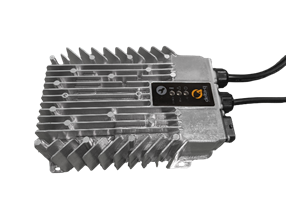
Delta-Q Technologies (Delta-Q) introduces its latest sealed charger with the RQ350 for electric vehicles and industrial machines. Having found significant market success with the IC Series chargers rated from 650 to 1200 watts, Delta-Q has set its sights on lower power applications with its new 350-watt charger. This new build was designed and tested to meet automotive levels of product reliability, improving machine runtimes. “The RQ350 is a response to our customers’ needs in multiple application segments,” says Lloyd Gomm, VP of Business Development. “Our customers have asked us to bring our high-reliability charger design into both lower and higher capacity battery charging applications. The RQ350 solidly answers the former need with a well thought out design offered at an OEM affordable price.” Designed for demanding applications such as floor care machines, pallet walkies, two-wheel e-mobility products, outdoor power equipment, and mobile aerial work platforms, the RQ350 offers OEMs the rugged design and flexible feature set they have grown to expect and appreciate from Delta-Q’s high-quality chargers. From using an IP66-sealed die-cast enclosure that can tolerate harsh application environments to the integration of CAN bus, Delta-Q offers reliability and design flexibility to OEMs integrating onboard chargers. The new charger features over-voltage protection from the AC line and is compliant to a variety of worldwide regulations such as UL, FCC B/CISPR-14, and UNECE R10. The RQ350 also benefits from Delta-Q’s extensive library of validated charge profiles that can be specified for each charger. In addition, like the popular IC Series, charger cycle data can be downloaded, and new charging profiles can be updated by the OEM or end-use customer. RQ350 charger evaluation samples are available for OEMs to order now.
Flux Power reports record Third Quarter Revenue
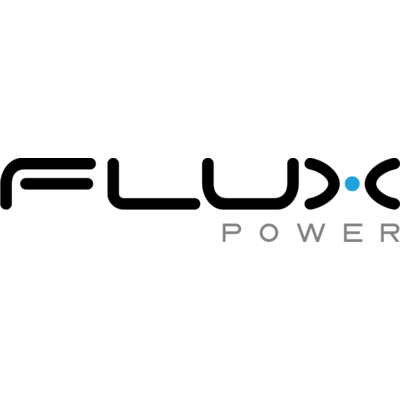
Flux Power Holdings, Inc., a developer of advanced lithium-ion batteries for commercial and industrial equipment including electric forklifts and airport ground support equipment (GSE), reported results for its fiscal year 2020 third quarter ended March 31, 2020 (Q3 ‘20). Highlights: Q3 ’20 revenue increased 188% to $5.1M reflecting the continuation of strong growth from the rollout of a full product line of packs for forklifts, along with increased unit volume and a higher percentage of larger packs. Q3 ’20 gross margins improved to 12.8% driven by Flux Power’s gross margin initiative, along with higher margins from larger packs. Despite COVID-19 impact, order backlog totaled $6.5M at the end of Q3 ’20, with only minor deferrals of orders during this period. Flux Power deemed an essential business consistent with announcements by Forklift OEMs and related supply chain, who support the logistics industry, critical to delivering food and supplies during the COVID-19 crisis. “To achieve record revenue in Q3 ’20, in spite of the COVID-19 environment and our implementation of a range of measures to ensure the safety and health of our staff and business, is a testament to the strength and resilience of our team,” commented Flux Power CEO Ron Dutt. “Our relationships with customers and supply chain remain strong, reflecting the continued demands for material handling nation-wide.” FY 2020 Flux Power anticipates continued momentum for Q4 ’20 and the remainder of this calendar year. While there is unprecedented uncertainty with the economy, Flux Power is experiencing only limited order deferrals from segments such as airport ground support equipment. Flux Power’s gross profit margin improvement program is gaining traction as Flux Power begins to implement a series of clearly defined activities to advance technology, design, production, and purchasing efficiencies. Q3 FY 2020 Operating Results: Q3 ’20 revenue increased 188% to $5.1M compared to $1.8M in Q3 ’19. As the customer base increases, Flux Power anticipates seeing a smoother, more stable, growth trajectory based on increasing customers and orders. Q3 ’20 gross profit improved to $649,000 compared to $61,000 in Q3 ’19, principally reflecting higher sales volumes, vendor pricing improvement from increased volumes, and early impact of the Flux Power’s gross margin improvement program. Selling and administrative expenses increased to $2.6M in Q3 ’20 from $2.4M in Q3 ’19, principally reflecting increased staffing to support expanded operations and growth. Research & development expenses increased to $1.5M in Q3 ’20, compared to $1.4M in Q3 ’19 as Flux Power progressed the development of higher capacity battery packs for larger equipment. Interest expenses increased by $413,000 to $503,000 in Q3 ’20 reflecting short term borrowings to provide working capital for growth. Flux Power’s Q3 ’20 net loss increased to $4.0M from a loss of $3.8M in Q3 ’19, principally reflecting higher operating costs and interest expenses, partially offset by the improvement in gross profit. On March 31, 2020, borrowings under Flux Power’s $12.0M Short Term Line of Credit provided by Esenjay Investments LLC, owned by Flux Power’s largest shareholder and other lenders, were $11.6M, due June 30, 2020, and two-second short-term borrowings were $1.9M. Flux Power continues to seek additional capital through private placements of convertible debt and/or equity securities, and public offerings of our equity, to fund operations. Flux, Flux Power, and associated logos are trademarks of Flux Power Holdings, Inc. All other third-party brands, products, trademarks, or registered marks are the property of and used to identify the products or services of their respective owners.
Flux Power announces new member on the Board of Directors
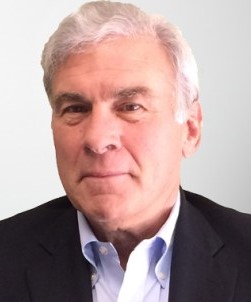
Flux Power Holdings, Inc., a developer of advanced lithium-ion batteries for commercial and industrial equipment including electric forklifts and airport ground support equipment (GSE) is announcing the appointment of John A. Cosentino, Jr. as a new member of the Board of Directors. Mr. Cosentino has extensive experience in management, private equity, and as a Board member of numerous companies, many of which are precision manufacturing companies serving industrial markets. Management experience includes VP Operations at The Stanley Works, President of Otis Elevator North America at United Technologies Corporation, Group Executive at Danaher Corporation, VP Finance at Black & Decker Corporation Household Products Group, and VP Finance at United Technologies Automotive Group. Private equity experience includes Founding Partner at Ironwood Manufacturing Fund, Senior Advisor at Ironwood Capital, and Partner at Capital Resource Partners. Governance experience as a member of the Board of Directors includes Sturm Ruger & Co., Habco Industries LLC, Simonds International, Whitcraft LLC, Addaero, LLC, The Bilco Company, Primary Steel LLC, The Wiremold Company, and Integrated Electrical Services. Mr. Cosentino is currently Vice Chairman and Lead Director at Sturm Ruger & Co., Chairman at Habco Industries LLC, and Director at Simonds International. Mr. Cosentino received an undergraduate degree from Harvard University and an MBA from Wharton School of the University of Pennsylvania. He resides in Simsbury, Connecticut with his family. “The Flux Power Board believes Mr. Cosentino’s impressive executive management, investment management, and board experience qualify him to serve on the Board of Directors,” comments Ron Dutt, CEO, and Chairman. “I am pleased to announce John’s appointment to our board and look forward to him providing a breadth and depth of experience so relevant to our business.” Mr. Cosentino is filling the open board position from the recent resignation of Mr. James Gevarges, with the board membership remaining at five.
Nano One receives $3M in Non-Dilutive Funding from the Province of British Columbia

Nano One Materials just announced that the Province of British Columbia is contributing $3,033,000 to Nano One’s “Scaling of Advanced Battery Materials Project” adding to the previously announced $5.25M contribution from Sustainable Development Technology Canada (SDTC). These funds are non-dilutive and non-repayable. “Nano One is honored to have the participation and support of the Province of British Columbia said CEO, Dan Blondal. “Three million dollars will add to our multi-year runway and provide additional flexibility in accelerating, scaling, and commercializing our lithium-ion battery cathode technologies. These funds from the Ministry of Energy, Mines, and Petroleum Resources leverage project milestones, due diligence, and reporting structure already in place with SDTC and will directly support scale-up activities with previously announced collaborators, Volkswagen, Pulead, Saint-Gobain and a number of their peers.” Nano One has developed a technology platform to improve the production and performance of cathode powders used in lithium-ion batteries, with 16 patents granted and many more pending. The technology can make a wide range of lithium-based composite powders for different battery applications including electric vehicles, e-buses, power tools, renewable energy storage, and consumer electronics, as well as next-generation solid-state batteries. Nano One is working collaboratively with global automotive, energy, and supplying companies to improve the cost and durability of lithium-ion batteries and to imbed its technology into manufacturing plans. This $3M contribution by the Province is being made as part of a funding partnership with SDTC and augments Nano One’s existing Project Funding Agreement with SDTC, executed in September 2019, bringing the total contribution to $8,283,000. The original project scope and milestone deliverables remain unchanged.
Mitsubishi Electric Automation, Inc. releases FR-E800 Series Variable Frequency Drive
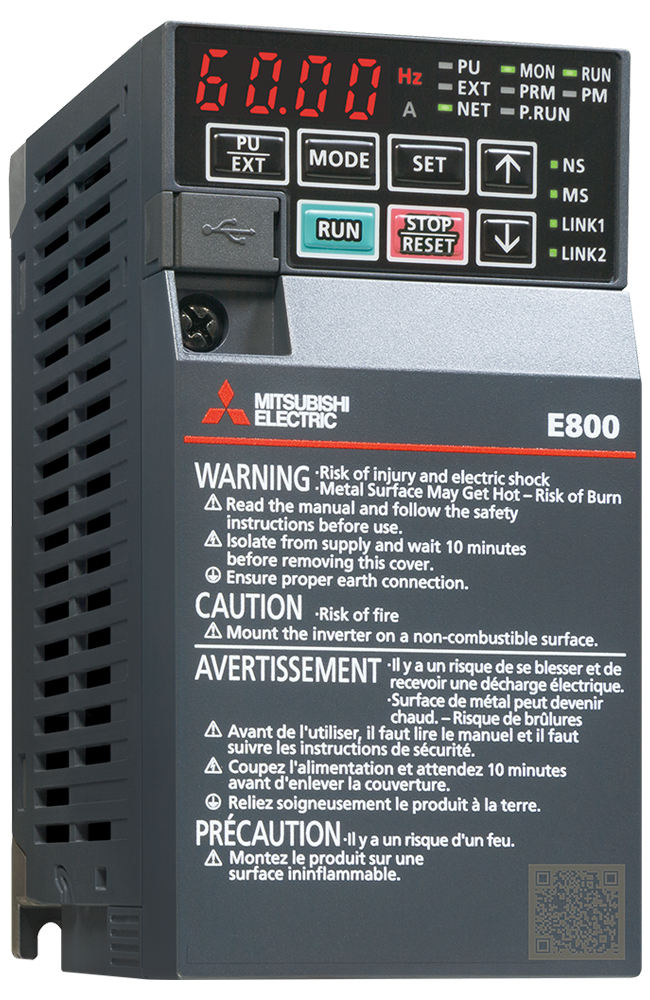
The new VFD features permanent magnet (PM) motor control and reduces energy usage so users can meet overall energy efficiency standards Mitsubishi Electric Automation, Inc. released the newest addition to its lineup of variable frequency drives, the FR-E800 Series. The micro-drive features a built-in PLC, and will include safety functionality meeting IEC 61508 standards and support various networks, including Ethernet/IP, MODBUS/TCP, and the soon-to-be-released CC-Link IE TSN. The FR-E800 Series is designed for engineering, technology, and product managers in industries such as packaging, material handling, food and beverage, and water and pumping, as well as those who are adopting PM motors to improve their energy efficiency. The FR-E800 is built upon Mitsubishi Electric´s proven variable speed control technology through years of reliable operation across various applications. It incorporates advanced capabilities in a compact footprint allowing for bookshelf style mounting. Additional features include extended programming functions, advanced fault detection features, and auto-tuning of PM motors for applications where energy efficiency is extremely important. The auto-tuning function includes configurable parameters to reach optimum performance, higher torque, faster acceleration, and lower noise level for quiet operation. This results in the efficient control of motors and equipment to meet or exceed energy efficiency regulations. For those OEMs that use induction motors in their equipment, the FR-E800 can control both induction and PM motors, helping to consolidate inventory and spare part management. The drive series is also dual-rated for light-duty and normal duty, which may help achieve desired performance in smaller frame sizes. »The FR-E800 introduces advanced features previously not available to micro-drives,» said Deana Fu, senior product manager at Mitsubishi Electric Automation. »From PM motor commutation and tuning to corrosion detection, and lifetime diagnostics of critical components, we feel that the FR-E800 will make a significant impact on manufacturing and HVAC.
AGVs and Li-ion Batteries. A match made in Heaven
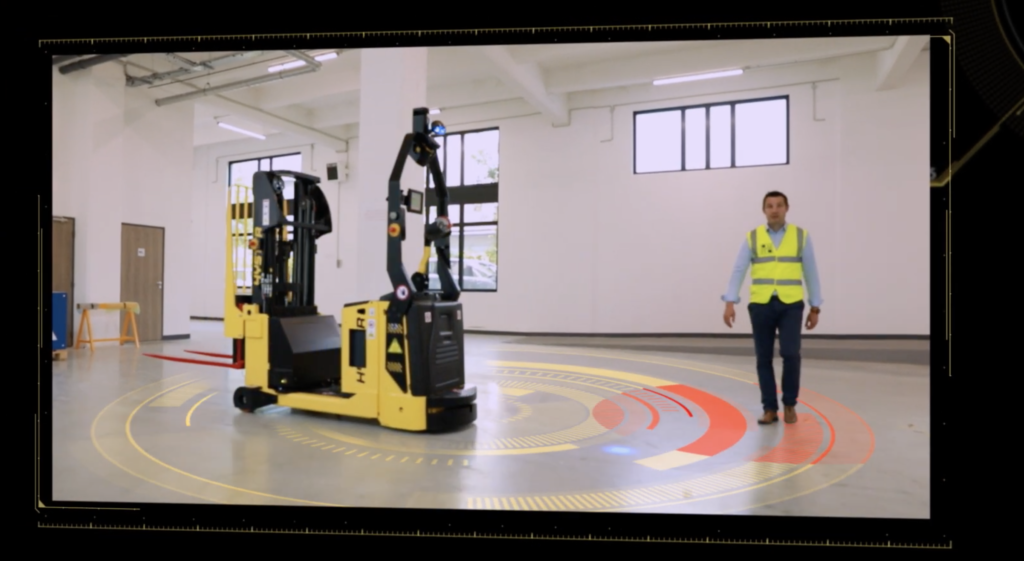
Automation brings unprecedented opportunities for the warehouses to improve operating efficiency and reduce costs. Among other innovations, Automated Guided Vehicles (AGVs) are getting momentum. An automated guided vehicle (AGV) system is a computer-controlled, wheel-based load carrier (normally battery powered) that runs on the plant or warehouse floor (or if outdoors on a paved area) without the need for an onboard operator or driver (MHI definition). Essentially, it is a mobile robot. The Pioneer Companies. To make an AGV you need a truck, a connected computer with sensors, and motive power. Balyo, a manufacturer of the “brains” for AGVs, partnered with Hyster-Yale Group and Linde. At the start of operations 3 years ago Balyo researched available options for motive power for their offering and decided to go with Lithium batteries. Baptiste Mauget, VP Marketing at Balyo, said the key requirement was an automated charging system, so electric power was an obvious choice: “The best energy solution for robots is Lithium batteries. We chose LTO chemistry for its longest cycle life and highest availability”. Baptiste further explains that “availability” of AGV in effect means uptime when the vehicle is not paused for charging. AGVs are sold by the advanced material handling equipment dealers, like Papé. Balyo has supplied a few of its AGVs to Papé’s Demo facility in Seattle, where warehouse managers can see these robots in action. Shane Fairbanks, Manager of the facility: “AGVs are mostly applicable in operations involving “stacker” lift trucks, where you need to pick things from a conveyor and stack them on shelves. Automotive, pharmaceutical, or logistics business are good examples.” Shane said that customers value AGVs because they can run 24/7 without needing an operator. With tangible efficiency improvements, AGVs are starting to get traction with technologically advanced companies with high volumes of material handling and warehouse space. You guessed it right – Amazon. “AGVs in our offer are 100% electric and all of them run on Li-ion,” Shane continues. OneCharge manufactures Li-ion batteries for material handling industry, with over 550 models for Class I, II and III lift trucks, sweepers, scrubbers, and Ground Support Equipment at airports. OneCharge has supplied Li-ion batteries to Papé’s demo AGV trucks in April 2018, and Shane says that clients’ interests in AGV solutions have started to pick up in the last few months. He calls it the “Amazon Effect on Things”. “Bigger companies may be slow on the adoption, but they have the money to experiment and once they test and prove a solution, others follow in a stream”, Shane says. Why Lithium Ion? Facilities that use AGV lead-acid battery-powered fleets consistently face about 20% asset downtime. This is due to the five to six hours of battery charging required for each AGV each day. Additionally, each lead-acid battery is required to be down for another 8 hours weekly for trickle charging and cell equalization. Indeed, Li-ion batteries’ benefits are even more pronounced with AGVs: significantly less charging time overall and flexible charging schedule, zero daily maintenance and stable voltage with higher travel and lifting speeds provide minimum downtime and highest operational efficiency. In the case with OneCharge Batteries, one can expect enhanced safety and advanced data capabilities with the top-notch Battery Management System and one can’t fail to recognize that AGVs and Li-ion is a perfect match! Spirit AeroSystems is one of the world’s leading designers and manufacturers of aerostructures, which provides products and solutions for both commercial and defense customers, including Airbus and Boeing. In late 2018 Spirit AeroSystems has started a demo project to stress-test one AGV Li-ion Battery, which was recommended to them by Green Energy Concept, Inc., consultant and installer of motive power solutions. After 9 months the whole fleet of the company’s lift trucks in Kinston, NC is switching to OneCharge Li-ion Batteries. Most of Spirit AeroSystems NC facility lift trucks are AGVs and MGVs (manually guided by an operator with a remote control). The company was permanently facing problems with maintenance and overall reduced runtime with the sealed lead-acid / TPPL batteries they were using for the last 5 years. The main reasons for switching to Li-ion were increased operational demands which the old lead-acid batteries could not support any longer. Allen Grady, Equipment Maintenance Manager at Spirit AeroSystems: ”We have a large facility to manufacture parts for AirBus A350, and we use lift trucks to move around big tools 24 hours a day. We had to stack spare lead-acid batteries at a special section of our facility and install special ventilation and other safety features there. Each truck was down for at least 30-40 minutes 6 times a day (twice per shift) changing big and heavy batteries. Big hassle and a big loss of time! With the new Li-ion technology we managed to sync our production schedule with batteries charging. It is now only once or twice per day, the battery stays inside the truck, and it takes 1-1,5 hour to fully charge a battery.” Oliver Kuarsingh, Director at GECI said: “OneCharge batteries can stand much more abuse and need much less attention compared to lead-acid batteries. ROI calculations and overall stability of OneCharge Li-ion Batteries were the main reasons we recommended OneCharge to Spirit AeroSystems.” Driving Style: Autonomous Vehicles vs. Humans How is battery performance is different when used by a human driver compared to the Automated system? In their article in “Electronics & Test,” Sudhi Uppuluri and Doug Kolak are discussing the relative performance of an electric car driven by a human and by an autonomous driver. It turns out that humans are much less gentle with the motor and battery. What it actually means is that a performance boost for the warehouse with AGVs introduction can be amplified by even higher battery performance and less downtime for charging and maintenance when a truck is controlled by a computer. https://www.designnews.com/electronics-test/how-autonomous-driving-affects-heat-loads-and-component-sizing-electric-vehicles/41833506461562?ADTRK=InformaMarkets&elq_mid=10411&elq_cid=4827409 Who shall pay attention? AGVs + Li-ion combination can dramatically improve any warehouse or conveyor operation with the efficiencies and savings mounting with scale. We expect the following industries
SDTC increases its contribution to Nano One by $250,000

Nano One received $250,000 contribution increase from SDTC Nano One continues to fulfill its commitments to projects, partners and funders Mr. Dan Blondal, CEO of Nano One Materials is pleased to announce that Sustainable Development Technology Canada (SDTC) has increased its contribution to Nano One from $5,000,000 to $5,250,000 with an additional payment of $250,000. This is a one-time non-dilutive contribution in response to the COVID-19 situation and represents a 5% supplement to SDTC’s current $5 million commitment to Nano One’s Scaling of Advanced Battery Materials project, bringing the total contribution agreement to $5.25 million.“SDTC has moved very swiftly in response to these unprecedented times by providing additional funding to their client companies, including Nano One, to enable continued innovation, to build new strategies, and to ensure the health and safety of our employees,” said Dan Blondal, Nano One’s CEO. Despite the global public health and economic crises, Nano One is on solid ground with over $11 million cash-on-hand, $5.25M in SDTC support and a multi-year runway extending over three years. This positions Nano One to emerge stronger and more resilient as these crises recede, and to benefit again from the clean technology sentiment that gave it so much momentum in January and February. Nano One has a growing portfolio of valuable patents, a world-class team and a number of critical strategic relationships which include Volkswagen, Pulead Technology, Saint-Gobain, and many of their peers. Opportunities with world-class companies are expanding rapidly and Nano One is moving them all forward, with some at an advanced stage. The COVID-19 issues are unprecedented, and Nano One is mindful of its employee’s health, wellness and careers. Consequently, workplace safety measures are being complemented with work-at-home policies as everyone adjusts to evolving public health guidelines. With these measures, Nano One’s research and business development activities are proceeding largely unaffected by the current crises. Mr. Blondal added “Nano One appreciates the extraordinary support it is receiving from the federal government through SDTC, from its shareholders and from its world class partners. We are confident in our team, our partners and our technologies as we accelerate activities and execute on our business plan.” Nano One has implemented effective workplace and work-at-home policies
EnerSys® Battery Solutions enable Hybrid Power approach for Optimal Operational Performance and Productivity
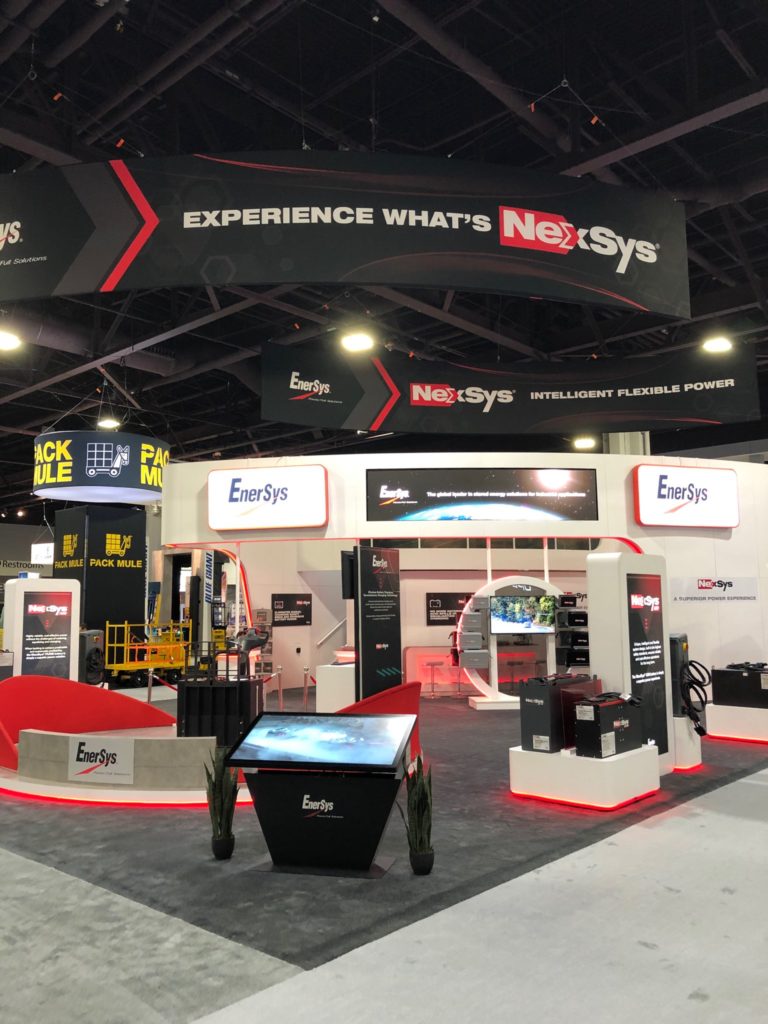
EnerSys®, the global provider in stored energy solutions for industrial applications, has featured its virtually maintenance-free NexSys® battery solutions at MODEX 2020 in booth no. 7632. The NexSys® battery portfolio, including NexSys® PURE and NexSys® iON batteries, offers warehouse and distribution centers varying technologies, enabling a hybrid power approach to material handling operations. Engineered with the latest generation of proprietary Thin Plate Pure Lead (TPPL) and advanced Lithium-ion (Li-ion) technologies, both NexSys® batteries are designed to deliver simple, more productive, predictable power for a wide range of material handling applications, no matter the size of the operation. “EnerSys strives to remain at the forefront of innovation to provide our customers with premium motive power solutions that maximize productivity and profitability,” said Harold Vanasse, Senior Director of Marketing, Motive Power Americas at EnerSys. “Our suite of advanced NexSys® batteries gives operators two dependable choices exclusively tailored to meet and exceed their power demands regardless of the vehicle application. Both battery chemistries can be utilized in different applications in the same facility to achieve an overall lower total cost of ownership.” Optimized for fast- and opportunity-charging, NexSys® PURE batteries are ideal for light- to medium-duty applications and are available in a range of capacities and configurations. Featuring a proprietary carbon additive for extended cycle life and increased lifetime energy throughput, the batteries are also equipped with an integrated Battery Management System (BMS) and Wi-iQ® battery monitoring device to track various performance metrics, including discharge current, charge current and State of Charge (SOC). NexSys® iON batteries are built to the highest safety, design, and manufacturing standards and are an ideal solution for powering heavy-duty applications. They are engineered with large format prismatic cells and Nickel Manganese Cobalt (NMC) cell chemistry and the control module in each battery features an integrated BMS that enables communication with the charger and truck for optimum safety and control. EnerSys also showcased the innovation behind wireless charging with an on-site demonstration. Wireless battery charging systems free up valuable floor space by eliminating the need for dedicated charging rooms. It can also slash labor demands, as operators will not be required to manually plug or unplug batteries. Instead, lift truck operators will simply drive over a location on the floor where a unit installed beneath it will automatically charge the battery.
EnerSys® to present the latest advances in Lithium-ion (Li-ion) Battery Technology during MODEX® 2020

EnerSys®, the global provider in stored energy solutions for industrial applications, will deliver a presentation on the latest advances in Lithium-ion (Li-ion) battery technology as it applies to the material handling industry. Presented by EnerSys Senior Vice President and Chief Technical Officer, Joern Tinnemeyer, the on-floor seminar will take place at MODEX® 2020 on Monday, March 9 at 3:45 p.m. in Theater F. The show will take place from March 9 to 12 at the Georgia World Congress Center in Atlanta, Georgia. “There’s been a great deal of industry excitement surrounding Li-ion battery technology as it pertains to lift truck power, but at the same time, quite a bit of confusion still remains concerning the benefits, features, and safety of the technology,” said Harold Vanasse, Senior Director of Marketing, Motive Power Americas at EnerSys. “As an industry-leading power solutions provider, it is our responsibility to stay in the technological forefront and to convey our knowledge on the latest scientific advancements in battery power. Joern Tinnemeyer possesses a wealth of knowledge on the subject and this seminar will give attendees a better ability to evaluate different lithium battery solutions that will help them to understand how it can transform vehicle productivity and performance for years to come.” Key takeaways from the EnerSys on-floor seminar – From Hoverboards to Lift Trucks: What You Need to Know About Lithium-Ion Batteries and the Battery Management Systems and Standards that Surround Them – are as follows: The differences between Li-ion battery technologies and why technology is a key consideration in the decision process The importance of the Battery Management System (BMS) as it relates to the safety, reliability, and performance of a Li-ion battery The standards to look for when choosing Li-ion technology The layers of a safe Li-ion design – from cells and system design to an overall culture of safety While at MODEX®, EnerSys also welcomes attendees to visit booth no. 7632 to discover the modernization behind virtually maintenance-free NexSys® batteries, including the NexSys® PURE battery and the upcoming NexSys® iON battery, two advanced solutions engineered to provide simpler and more productive, predictable power to enhance the overall user experience. Featuring the latest generation of Thin Plate Pure Lead (TPPL) and advanced Li-ion technologies, these superior batteries provide intelligent, flexible power to deliver increased reliability and performance no matter the size of the operation. In addition, EnerSys will showcase the innovation behind wireless charging with an on-site demonstration. Follow us on LinkedIn in the weeks leading up to MODEX® for more information on the EnerSys booth display and on-floor educational seminar.
Flux Power CFO selected as finalist for 2020 CFO of the Year Award
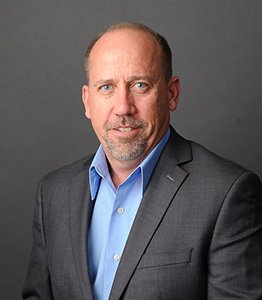
Flux Power, a developer of advanced lithium-ion batteries for commercial and industrial equipment including electric forklifts and airport ground support equipment (GSE), announced that CFO Chuck Scheiwe has been selected as one of the finalists for the San Diego Business Journal’s 2020 CFO of the Year Award. Chuck joined Flux Power as Controller in July 2018 and was promoted to CFO in December of 2018. He is responsible for financial planning and analysis, accounting, and all aspects of corporate finance.
EnerSys® to participate in 17th annual Student Day at MODEX® 2020
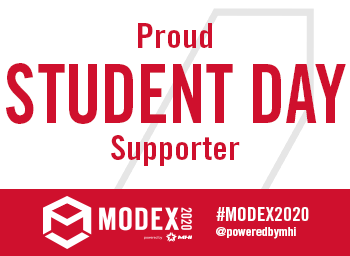
EnerSys®, the global provider in stored energy solutions for industrial applications, will be participating in Student Day at MODEX® 2020 as a designated tour guide, leading a group of students interested in pursuing a career in the supply chain industry and introducing them to representatives of exhibiting companies who are seeking new talent. The Material Handling Industry (MHI), in partnership with the Material Handling Education Foundation, Inc. (MHEFI) and the Material Handling Equipment Distributors Association (MHEDA), hosts the annual event to offer students a real-world understanding of the products, services, and technologies relevant to the material handling industry. This year’s program will be held on Wednesday, March 11 at Georgia World Congress Center in Atlanta, Georgia. In its 17th consecutive year, this interactive event draws hundreds of students and faculty from universities, community colleges and high school Career and Technical Education (CTE) programs from across the region to connect with industry professionals to learn about material handling, logistics and supply chain solutions. “We are committed to educating future leaders by fostering a culture of support and empowerment to guide students towards a rewarding career in logistics and supply chain management,” said Chad Uplinger, Vice President, Motive Power Americas at EnerSys. “We commend MHI for their dedication to holding an annual event that truly values students by placing them in an ideal situation to learn directly from the professionals who influence the industry.” EnerSys Sales Manager, Jarrod Smith, will serve as the EnerSys ambassador who will lead one of this year’s Student Day tours. Jarrod joined EnerSys in June 2008 and has more than 20 years of experience in the material handling industry. As a designated tour guide, Jarrod will be responsible for initiating introductions with onsite exhibitors, serving as a resource for fielding student questions and offering insight on career opportunities within the industry. “Jarrod’s high-energy persona and extensive background in the industry, make him the perfect candidate to represent EnerSys at this event,” continued Uplinger. “It’s an honor to be working alongside MHI and other leading industry professionals to help foster the supply chain experts of tomorrow.” Students participating in this year’s program will also have the chance to meet MODEX 2020 keynote speakers, two-time Super Bowl champion Peyton Manning and his father, National Football League (NFL) legend, Archie Manning. To learn more about Student Day at MODEX 2020, including event itinerary and participating organizations, visit www.modexshow.com/education/default.aspx#sd.
Adam Abrom recognized as Flux Power Sales Manager of the Year

Flux Power, a developer of advanced lithium-ion batteries for commercial and industrial equipment including electric forklifts and airport ground support equipment (GSE), recognized Regional Sales Manager Adam Abrom as the recipient of the Sales Manager of the Year award for 2019. Abrom’s territory includes most of the central US, as well as Florida. “I would like to congratulate Adam for his dedication, professionalism, and work ethic that allow him to succeed in his goals and achievements,” commented Director of Sales Tod Kilgore. “His innovation and leadership skills are well deserved and recognized.”
Big Joe launches three Lithium-Ion pallet trucks at MODEX
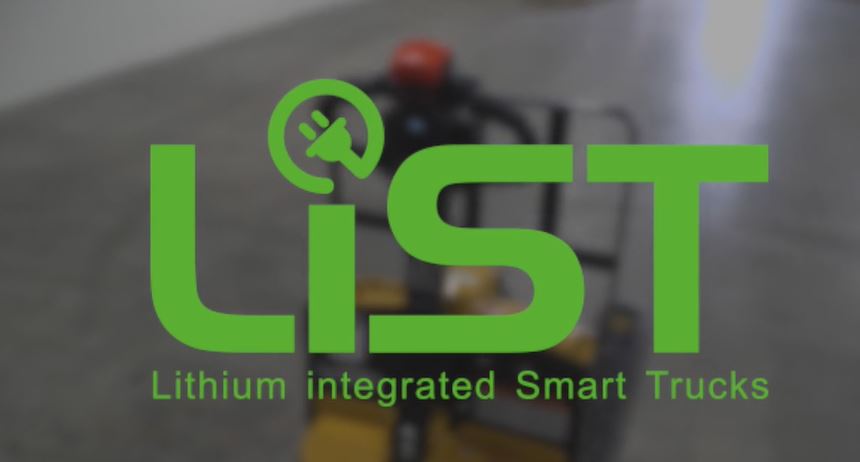
Big Joe Forklifts will be launching three Lithium-Ion pallet trucks at MODEX 2020 in Atlanta, Georgia on March 9 – 12, 2020. They will be introducing the LiST series of lithium integrated smart trucks with new high-performance li-ion powered pallet trucks with 2,600, 3,300, and 4,400 lb. capacities. A teaser video is listed below to learn more about the new pallet trucks. This video is a of Lithium-Ion pallet trucks that displays on the website. Keep up to date on the latest news and products.

